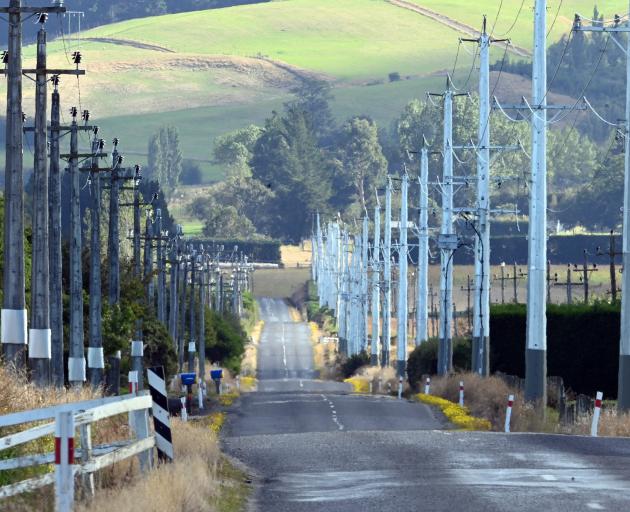
Selling the company would not make a difference to the rates rise for 2024-25 — projected to be about 17.5% — but it would provide a new revenue stream for future years.
An investment fund would be created, potentially producing millions of dollars in proceeds each year, easing some pressure on rates.
The public will be consulted over the sale proposal.
Dunedin Mayor Jules Radich said he expected interest in buying the lines company would be high and a premium sale price could be expected.
"When our council announced the proposed 17.5% rates increase for 2024-25, I also said we were looking for alternative revenue streams to put our city on a more sustainable path," he said.
"The council’s preferred option is the sale of Aurora, allowing repayment of Aurora’s forecast debt of about $570 million and the creation of an investment fund for the remaining hundreds of millions of dollars."
The council voted 13-1 on Tuesday, during the non-public part of a council meeting, to put the proposal to the public.
Cr Marie Laufiso voted against and Cr Jim O’Malley was absent.
Aurora Energy is New Zealand’s seventh-largest electricity network by customer connections, supplying electricity to more than 90,000 homes, farms and businesses in Dunedin, Central Otago and Queenstown Lakes.
The company has had a troubled history, particularly relating to neglect of its network from about 2013, and there was controversy about dividends being used to fund building Forsyth Barr Stadium.
There has since been an overhaul and considerable spending on maintenance.

This enabled the company to work out how much money it could get back from customers while it upgraded the network.
Some discontent remained at the council about a lack of dividends in recent years.
In 2021, Cr Lee Vandervis argued the council should consider selling some of its companies, including Aurora Energy.
Cr Vandervis suggested the council allow another party to run the companies "properly, because we have failed".
Rising debt for both the council and its companies has been a source of anxiety in the council’s recent planning discussions and in the community.
Public submissions on the Aurora sale proposal will be considered at a hearing in May.
If the sale does not go ahead, group debt — which already exceeds $1 billion — is forecast to rise above $1.5b in 2026.
Mr Radich said the council needed the right mix of assets and it wanted its commercial investments to produce higher, more consistent and sustainable returns for the city.
"We know this announcement might be unsettling for staff at Aurora, but the company’s operation will continue as normal and staff will be supported throughout this process."
Existing customer protections would remain.
Any fund would be protected and inflation-adjusted to protect its value over time, making it an intergenerational asset, Mr Radich said.
It could be similar to the council’s Waipori fund, but significantly larger.
Aurora’s annual report from last year recorded total assets as being worth $805.3 million.
Any sale price is expected to be well north of this.
The annual report referred to substantial levels of capital investment and improved performance when compared with recent years.












